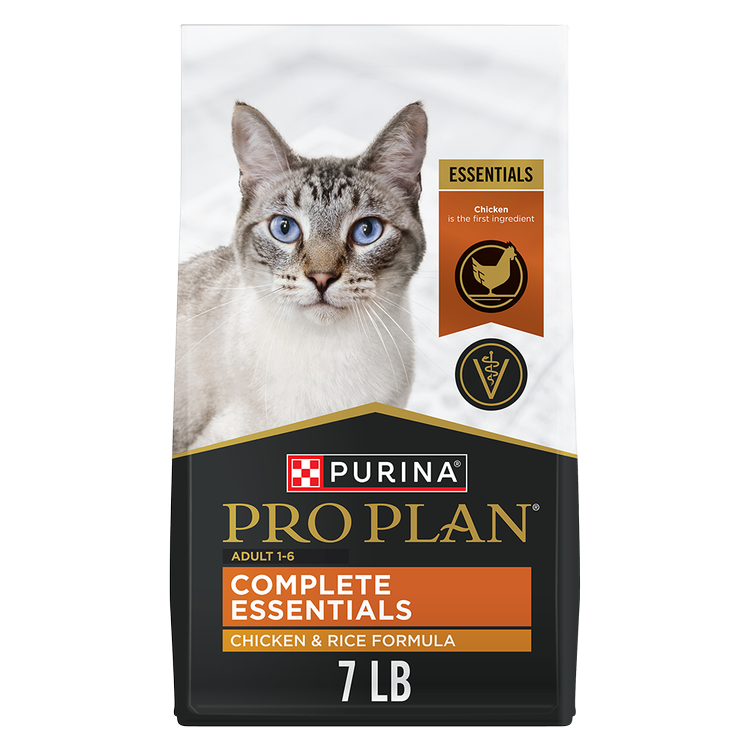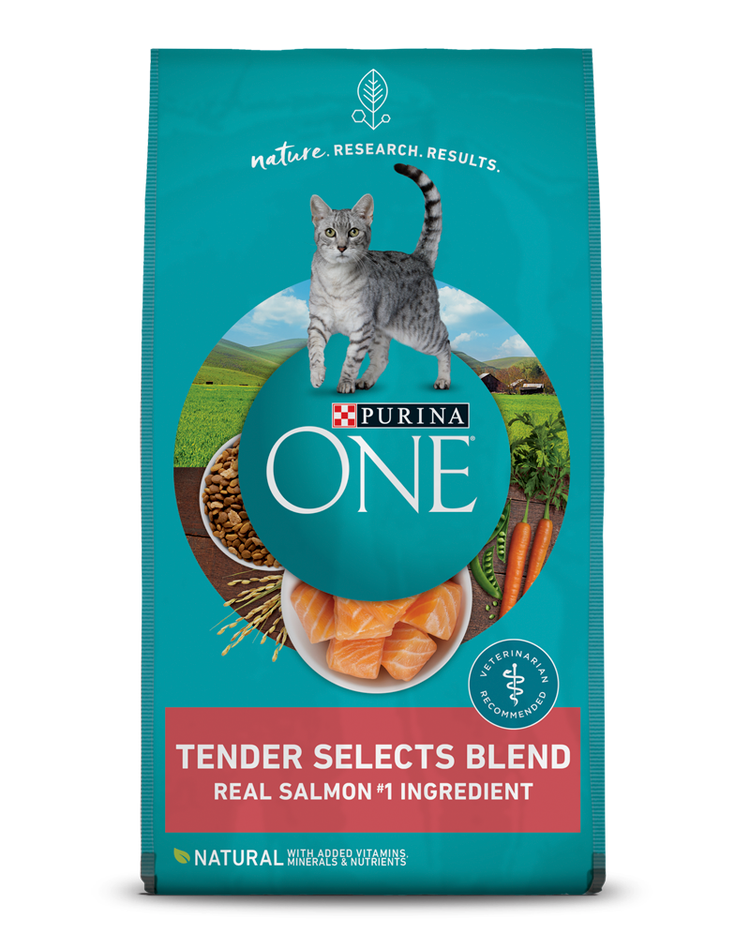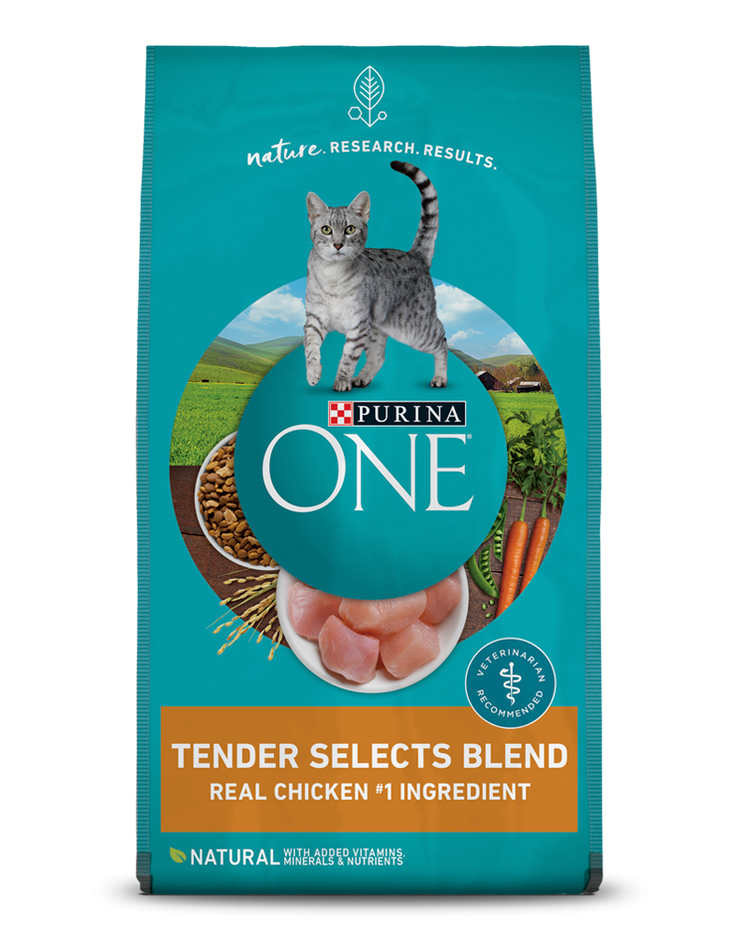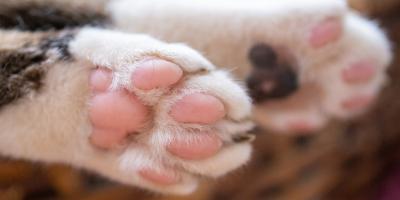True allergies are thankfully very rare in cats and can often be confused with the more common (and less severe) food intolerances. Learn how to spot if your cat has an allergy and what you can do to get them back to their happy and healthy selves again.
What Are Food Allergies in Cats?
Food allergies in cats involve a reaction to often only tiny amounts of an ingredient in a particular food, such as beef, dairy products or fish. Although allergies are often diagnosed in young cats, they can crop up at any age, so it’s worth getting any unusual symptoms checked out at any age.
Cat food allergies are very difficult to diagnose, as there are no allergy-specific tests available. Symptoms aren’t usually specific, and the triggers can be inconsistent.
The symptoms of food allergies in cats can often be mistaken for other medical conditions, so it’s very important to ask your vet’s advice before you make any changes to your cat’s diet. You’ll want to make sure that you really are treating an allergy and not another condition altogether.
What Are the Signs and Symptoms of a Cat Allergy?
Typical symptoms of cat food allergies include:
- Skin problems - itching and redness, bald areas or actual abrasions of the skin, usually caused by the cat scratching themselves
- Recurrent ear infections
- Hairball problems, due to swallowing fur when scratching/over-grooming themselves
- Gastrointestinal problems including vomiting and diarrhea
- Respiratory problems (although these are rare)
Although persistent scratching can be an allergic response, it can also be caused by flea dermatitis (a reaction to flea saliva). Never try to treat a suspected allergy yourself.
Once your vet has ruled out other medical conditions, they will probably recommend diet trials to establish what your cat could be allergic or intolerant to. These trials need to be closely supervised by your vet, to make sure your cat continues to get all their essential nutritional ingredients.
How Can Vets Test for Cat Allergies?
If your vet suspects your cat has an allergy to cat food they will probably recommend an exclusion diet trial. This is where you will temporarily feed your cat a bland, hypoallergenic diet, where the proteins in any ingredients are so small they can’t (or very rarely) cause an allergic reaction.
The exclusion diet will last a fixed period of time, depending on your cat’s symptoms. If, for example, they’re experiencing cat skin problems, they may be given a restricted diet for 4 to 12 weeks, sometimes longer. Gastrointestinal problems usually show signs of improvement in a shorter time frame.
While your cat is on the exclusion diet, they shouldn’t eat anything else – and that means no titbits or treats from anyone in the family, no matter how tempting it may be! Outdoor cats are best kept indoors during the trial, as eating the odd mouse isn’t going to help matters.
It takes patience and perseverance to stick to the diet and, the occasional slip-up might happen. If it does, be honest with your vet, as they need to know all the facts, including any refusals to eat the bland diet.
After the Trial Period
At the end of the trial period, your vet will check your cat to see how they did on their new diet. In particular, they’ll want to know if symptoms have improved, changed or remained the same. If there’s been no improvement, the chances are that your pet doesn’t have a cat food allergy, and your vet will consider what else could be causing them to not feel themselves.
If there has been an improvement, that’s good news for you and your cat! Your vet will discuss what happens next but, depending on your cat’s specific problems, it may involve slowly reintroducing proteins to their diet one by one and keeping a close eye on their response. If their symptoms return when they eat a particular food, you may have found the culprit.
It’s then a case of finding a different, nutritionally balanced diet, in the long- or short-term, that avoids that ingredient.
Sometimes, however, it’s not that simple and there could be more than one food type responsible for your pet’s cat food allergy. That’s why it’s so important to get your vet involved and not try to do the detective work yourself. It can be a tough process, but will be worth it in the end when your pet can happily eat their dinner without the worry of any nasty after-effects!
If you are concerned that your cat may have an allergy to cat food, consult your vet right away.
For more tips from Purina experts on cat digestion, explore our other cat digestion articles.
Related articles

Be Rewarded for Your Purina Purchases
Earn and redeem points for Purina products with myPurina app.








